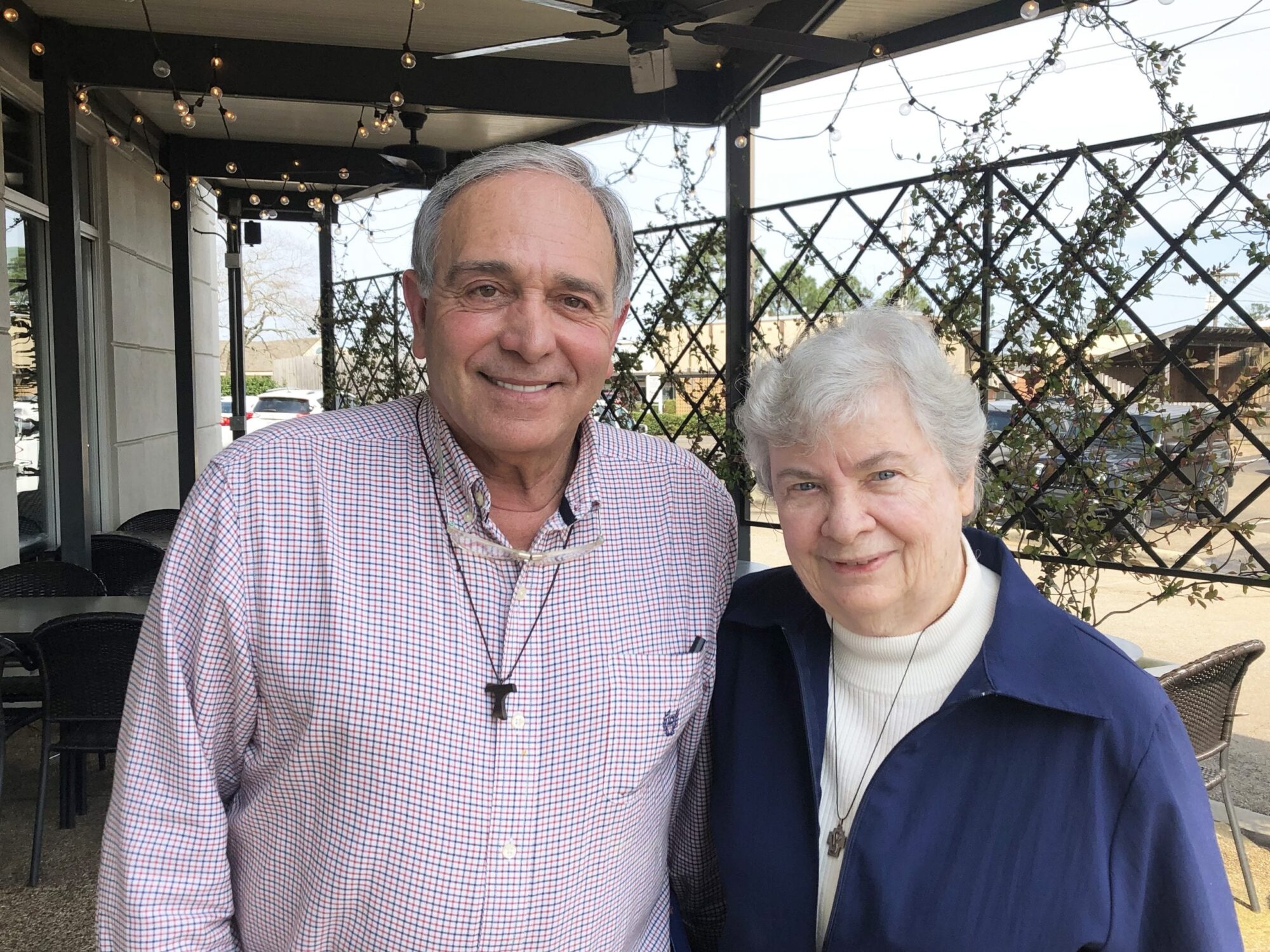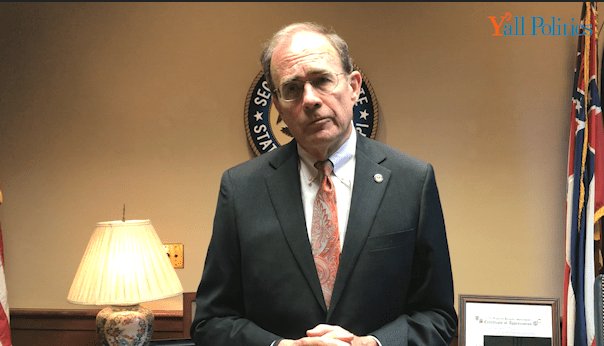
“Getting out.”
That’s the focus of nearly all of those who enter Mississippi’s criminal justice system. But, sadly, for a number of those who do get out, it’s only a matter of time before they are back behind bars.
This pattern is one that Chaplain Marvin “Marv” Edwards has seen many times. Marv is the Coordinator of the Catholic Ministry at Parchman and along with the assistance of church volunteers has implemented a new program at Central Mississippi Correctional Facility in Pearl called “Getting Ahead While Getting Out”.
“Five years ago, I was introduced to the ‘Bridges Out of Poverty’ program by Catholic Charities. It works on the idea of poverty in your life – not just poverty in attitude, poverty in social issues, and poverty in general,” said Marv. “’Getting Ahead While Getting Out’ was born out of that program and focuses on those who are in prison.”
The program is designed for a small group of 12 prisoners who are nearing their release date. Participants meet once a week to discuss potential issues they will face when they reenter their communities.
“It’s not a program where we are there to teach them,” said Marv. “It’s a program where we come together as a group and we are there to facilitate. The work on the issues themselves. We guide them into finding out for themselves and lead them into understanding their world and how to change their world.”
Marv worked for several years to implement the program, and Mississippi’s recent criminal justice reform efforts allowed him to implement it last summer.
“This movement in Mississippi created interest in the program. I got a call from Sister and she asked if there was any way I could use her in this ministry. She worked on getting us a small grant to get started, and we got people certified in the program to get it going,” Marv said.
Sister Madeline Kavanaugh, Daughter of Charity has been working with Marv on the project since its inception.
“We’ve gotten it going in the system now,” said Madeline. “We have two ladies’ classes and one men’s class going. We have eight volunteers working within the system and others working outside as well.”
The program is designed to offer a comprehensive approach to reentry. It helps to reduce recidivism and the financial and social costs of re-offending. It also helps support reentry of citizens who contribute to society while building stronger and better-resourced individuals and families. It has been well received by participants.
“The women are better receiving,” said Marv. “It takes the men longer to open up. It’s important that we establish trust among the group because things can get very deep.”
Madeline agreed.
“They get to know each other and no one new is allowed into the group,” she said. “In the beginning I wasn’t sure what to expect. We had our first session with the women’s group, and I wondered if they would return with their materials.”
To her surprise, the members of the group each returned with their books, notebooks, and had worked through their exercises.
“One of the first things they do in the book is draw out the place where they will live when they get out,” said Marv. “They draw out the rooms and name the people who are going to be living there. Then they determine how much it’s going to cost to do the things they need to do. Throughout the program they refer back to that first exercise and it gets them thinking deeper about the needs they will have once they are released.”
“It’s giving them new ideas,” said Madeline. “It’s things they have thought about before but not in this way.”
Marv said the program has seen success in other states including Oklahoma, Florida, and Texas.
“I spoke with a man who Oklahoma who was using the program in a prison there. He told me that all the people who started the program had plans on going home when they got out. At the end of the program, all but one decided to go elsewhere because they say that going home was not the answer,” he said. “Sometimes when you look at it that’s not such a great idea because that’s the environment that got you into trouble in the first place. That’s something that they are beginning to discover on their own through this program.”
In his years working with those in the prison system in Mississippi, Marv has seen the frustrations of the system played out many times.
“The struggles are unending when someone is released,” he said. “Immediately when they get out, they don’t have a license or an identity. The hit the street with nothing. They have no skills. A person who has been in prison for 30 years has no idea how to operate a computer. He’s got to go back and get his birth certificate again in order to get his driver’s license. If he owes any fines, he can’t get a license until the fines are paid. Well, he can’t get a job because he doesn’t have a license. It’s a catch 22 situation. Everything is stacked against them, and they don’t have the opportunity to get a life going before they are faced with issues that can send them back to prison.”
The current system, according to Marv, is broken.
“There’s no question the system is broken. The way our system is set up now, there is absolutely no correction. Jeremiah 10:24 says, ‘Correct me, O Lord, but with justice and not anger or you’ll lead me to nothing.’ We are correcting with anger which leads them to nothing rather than correcting with justice which can lead them to a better life.”
Through this program, Marv hopes they are able to help some of those leaving the prison system find a new life. They have formed an organization called MARC (Mississippi Association for Returning Citizens) with the goal of growing into something more.
“We want to have programs inside and outside the system. We want to offer resources for those who are released and also plan on working with the families of the ones getting out to prepare them for the person coming back into their lives,” said Madeline.
Eventually, Marv said, they’d like to see the program implemented at all of the facilities in Mississippi.
“We are working on getting it into Parchman now and would like to branch out to South Mississippi as well,” he said. “When you say a person is serving time, he really is. Time is his master and time is absolutely wasted in the system.”
Marv and the other volunteers believe that time would be better spent preparing and equipping prisoners with the tools they need to turn their lives around once they are released.

Broken is a series that highlights broken pieces of our criminal justice system, how they impact people, and how we can fix it.









